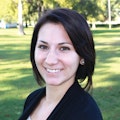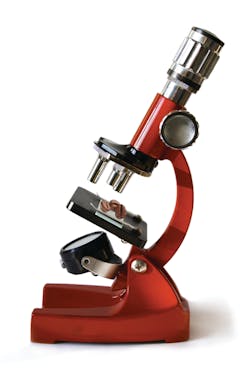University opens coffee research center
The popularity of coffee in the U.S. cannot be ignored. It is a commodity consumed daily by most people, yet other than health aspects, there is relatively little scientific research on the specifics of roasting and brewing coffee. That’s why the University of California Davis (UC Davis) in Davis, Calif. has recently developed a coffee research center focused on partnering with companies through the coffee industry.
Center focuses industry challenges
The UC Davis Coffee Center spun out of the university’s world-renowned Food for Health Institute, which takes a multi-disciplinary approach to solving problems in agriculture, food and health. When researchers within the Institute started looking at the coffee supply chain, they saw the potential for solutions to industry-wide problems. Companies could be throwing out high-value products creating incredible amounts of waste. Over several months, the Institute put together researchers interested in the study of coffee and launched the Coffee Center on March 11 with a research conference.
During the event, Dr. William Ristenpart, professor in the Department of Chemical Engineering & Materials Science at UC Davis spoke on the lack of academic programs focused on the future generation of coffee scientists and proposed a curriculum focused on coffee. Last fall, he used the principles of making coffee to teach undergraduate students about chemical engineering. The students roasted beans, took apart a coffee mixer and for their final project, were tasked to brew the best cup of coffee with the least amount of energy.
Samara Freeman, assistant director, business development/operations at the Food for Health Institute reported receiving industry-wide responses from the March 11 conference, “From this event we heard back from roasters, green coffee buyers, coffee shops and machine manufacturers who all called for more research in coffee,” she said. “Roasters contacted us looking for innovations in roasting. People want to find a better way on how to deliver coffee products to the consumer.”
Major in coffee?
In the long run, the Center hopes to create a major in coffee, but not just to undergraduates receiving a bachelor’s. “We would also offer short courses in the UC extensions so that companies could send employees to gain more knowledge on the coffee process,” said Freeman.
The UC Davis Coffee Center may be in its infancy, but it has the vision of solving common problems within the coffee industry. “One of our goals is to be industry-relevant,” said Freeman. “We want a program that is going to stimulate innovation through taking what we know about coffee and using it as a vehicle to train the next generation of scientists.” They believe they can do this through educating future the next generation of employees in the coffee industry.
Although unique, UC Davis’ idea to integrate coffee and study is not new. At Vanderbilt University, an Institute for Coffee Studies was established fifteen years ago in 1999 to investigate health effects of coffee consumption, promote research into coffee production and to promote economic development programs with other countries. Eight years later in 2007, the program was expanded beyond biomedical aspects of coffee research.
Looking to partner
The UC Davis Coffee Center is still in its formation phase, and it wants feedback from the industry. Researchers are focused on the common coffee industry problems going forward. “We are looking for partnerships that would allow us to research new solutions to industry-wide problems,” Freeman concluded. “We want to be responsive to industry needs.” No matter the size or location of the operation or company, Freeman notes that any partnership would positively influence future coffee research.
About the Author

Adrienne Klein
Contributing Editor
Adrienne Zimmer Klein is a freelance writer with a background in the vending, micro market and office coffee service industry. She worked as an associate editor and managing editor at Automatic Merchandiser and VendingMarketWatch.com from 2013 until 2017. She is a regular contributing writer at Automatic Merchandiser.
